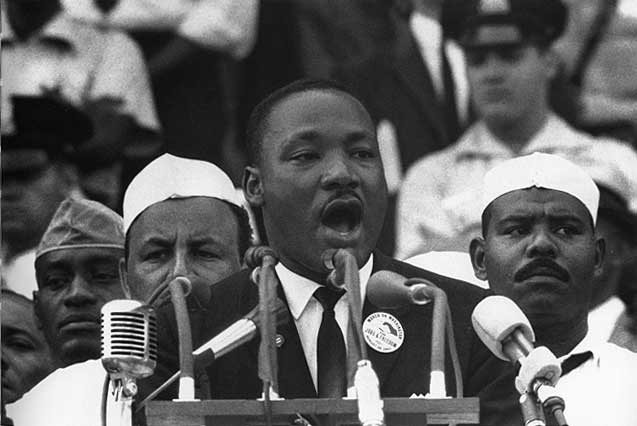Today being the 50th anniversary of the 1963 March on Washington, I thought a Lucille Clifton poem would be appropriate. The poem was actually written following the assassination of Martin Luther King, but it asks a question that was asked following the 1963 march and should also be asked following the 50th anniversary march: what next?
Melissa Harris-Perry, Tulane political science professor and MSNBC commentator, talks about the 1963 march less as a moment and more as a movement. Moments may provide powerful inspiration but they do not last. Movements, on the other hand, make broad change possible.
Thinking along similar lines, Clifton in her poem asks what we should do “after the savior is gone.” Saviors, like moments, pass away and then what do we do? The danger is that we become so dependent on a savior (or on the excitement of a march) that we fail to engage in the grind that is necessary to make change happen.
Some grinding is currently necessary as a number of GOP-controlled states are passing legislation to make voting more difficult for minorities and the young. Hopefully, those inspired by this year’s march on Washington and by stories of the one fifty years ago will now engage in renewed efforts to protect the voting rights that their forbearers fought for.
Here’s Clifton’s poem:
the meeting after the savior gone
4/4/68
what we decided is
you save your own self.
everybody so quiet
not so much sorry as
resigned
we was going to try and save you but
now i guess you got to save yourselves
(even if you don’t know
who you are
where you been
where you headed
Incidentally, I shared this poem in a post two years ago to argue that those who were counting on Barack Obama to save them needed to get real and step up their game—which included not only supporting him but also putting pressure on him. Those who turned away in disillusion—and there were also people who would become disillusioned with King in the years after the dream speech—don’t get things done. Saviors who have really done their job inspire people to take on the saving process themselves.
One savior that I’ve been thinking of recently with the death of my father is Myles Horton, a good friend of his and founder of Highlander Folk School. Located near Sewanee, Highlander was, and is, a grass roots organizing center that brings together local activists to share ideas and work for change in their communities. Myles, my father said, judged the success of Highlander by how much people grew beyond it.
For instance, although Highlander played a key role in the union movement in the 1930s, ultimately the Congress of Industrial Organizations cut its ties with the school as it became more established, joining the American Federation of Labor to become the AFL-CIO. And although Highlander played a vital role in the Civil Rights movement in the 1950s, bringing together whites and blacks to plot strategy and providing Rosa Parks with a springboard to trigger the Montgomery bus boycott, ultimately black militants turned their backs on it. (My father was head of the Highlander Board of Directors when they wouldn’t let the Black Panthers bring their weapons on campus, even though Highlander wanted their participation.) In recent years they have fought strip mining, mountaintop removal, and toxic waste dumping in the Appalachians and have worked for Hispanic rights.
When I was a reporter for the Winchester (Tennessee) Herald Chronicle in 1975, I interviewed Myles for an article on what had happened to Highlander after it was chased out of our area. (The owner of the paper quashed the article, just as he quashed my profile of the local head of the NAACP. Racism still ran deep in southern Tennessee at the time.) Throughout the interview Myles deflected all questions away from himself and toward the work that Highlander was doing in its new location outside of Knoxville.
In answer to Clifton’s poem, Myles would tell us to turn to others to find out “who you are/ where you been/where you headed.” And then, working with others, he would tell us to set about saving ourselves. Saviors are just to get us kickstarted.

One Trackback
[…] just have to realize that there’s no savior out there. As Lucille Clifton puts it in a poem written about life after Martin Luther […]